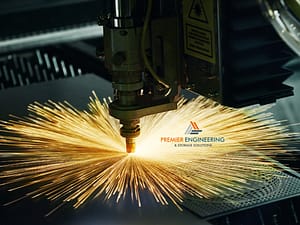Keeping high mileage cars in good shape is important for staying safe on the road. As cars get older and rack up miles, they’re more likely to have problems. Regular maintenance can prevent bigger issues, keep the car running longer, and even help maintain its value.
Key Car Care Practices
Good car care means doing regular check-ups, making repairs when needed, and preventing problems before they happen. Important things to focus on include oil changes, checking fluids, taking care of your tyres, and getting your brakes inspected. Doing these simple tasks can save you from costly breakdowns later.
Special Considerations for High Mileage Cars
Common Issues in High Mileage Cars
As cars age and gain more miles, some issues tend to show up more often, like:
- Engine Wear: Parts of the engine can wear down, leading to lower performance or even engine trouble.
- Transmission Problems: The transmission fluid may break down, causing shifting problems and possible damage.
- Suspension Wear: Shocks and struts may wear out, making the ride less smooth and harder to control.
- Cooling System Issues: Radiators, hoses, and water pumps may start to fail, leading to overheating.
Signs Your Car Needs Extra Care
Watch for these signs that your high mileage car might need extra attention:
- Unusual Noises: Sounds like grinding, knocking, or squealing could mean serious trouble.
- Fluid Leaks: Puddles under the car may show a leak from the engine, transmission, or cooling system.
- Reduced Performance: If your car doesn’t accelerate well or uses more fuel, it could be an engine problem.
- Warning Lights: Don’t ignore dashboard warning lights—they’re trying to tell you something’s wrong.
Essential Tips to Keep Your Car Running Longer
Regular Oil Changes and Fluid Checks
Changing your oil regularly is one of the most important things you can do. Fresh oil helps the engine run smoothly and prevents wear. Also, keep an eye on other fluids like coolant, brake fluid, and power steering fluid. Topping them off when needed helps keep everything working well.
Don’t Skip Scheduled Services
Follow the service schedule recommended by the car manufacturer. These services usually include inspections and replacing filters, which can help catch problems early. Keeping up with these check-ups makes sure your car gets the care it needs to stay in good shape.
Finding Reliable Car Services Nearby
For proper car care, it’s important to find a mechanic you trust. Look for service centres with skilled mechanics who know how to work on high mileage cars. Regular check-ups at a reliable garage will help keep your car running smoothly and prevent any surprise breakdowns.
Maintaining Engine Health
Tips for Preventing Engine Wear
To prevent engine wear in high mileage vehicles, consider the following tips:
- Use High-Quality Oil: Opt for synthetic or high-mileage oil designed for older engines.
- Keep the Engine Clean: Regularly clean the engine bay to prevent dirt and debris buildup.
- Check and Replace Filters: Ensure air and fuel filters are clean and replace them as needed.
Best Practices for Engine Maintenance
Effective engine maintenance involves:
- Regular Tune-Ups: Schedule regular tune-ups to check spark plugs, ignition coils, and other vital components.
- Inspecting Belts and Hoses: Regularly check belts and hoses for signs of wear and replace them if necessary.
- Monitoring Coolant Levels: Keep an eye on coolant levels and ensure the cooling system is functioning correctly.
Using High-Quality Oils and Additives
High-quality oils and additives can enhance engine performance and longevity. Look for oils with additives that reduce friction, clean the engine, and prevent sludge buildup. Additionally, fuel additives can help keep the fuel system clean and improve efficiency.
Protecting Your Car’s Transmission
Importance of Transmission Fluid Maintenance
Transmission fluid is essential for the smooth operation of your vehicle’s transmission. Over time, the fluid can become contaminated and lose its effectiveness, leading to shifting problems and potential damage. Regularly checking and changing the transmission fluid can prevent these issues and extend the life of the transmission.
Signs of Transmission Issues
It’s crucial to recognize signs of transmission problems early:
- Delayed Shifting: Hesitation or delays when shifting gears.
- Slipping Gears: The transmission slips out of gear while driving.
- Unusual Noises: Grinding, whining, or clunking noises during gear changes.
- Fluid Leaks: Transmission fluid leaks can be identified by reddish fluid under the car.
How to Keep Your Transmission in Top Condition
To maintain a healthy transmission:
- Follow Maintenance Schedule: Adhere to the manufacturer’s recommended transmission service intervals.
- Use the Right Fluid: Ensure the correct type of transmission fluid is used for your vehicle.
- Avoid Overheating: Prevent the transmission from overheating by using an auxiliary cooler if necessary.
Ensuring a Healthy Exhaust System
Common Exhaust System Problems in High Mileage Cars
High mileage cars often face exhaust system issues due to prolonged exposure to heat and corrosive elements:
- Rust and Corrosion: Over time, moisture can cause rust, leading to holes and leaks in the exhaust system.
- Muffler Damage: A damaged muffler can result in increased noise and reduced efficiency.
- Catalytic Converter Issues: A failing catalytic converter can cause poor performance and increased emissions.
Maintenance Tips for the Exhaust System
Proper maintenance can prevent many common exhaust system problems:
- Regular Inspections: Have your exhaust system inspected regularly for signs of rust, damage, or leaks.
- Keep the Underbody Clean: Regularly wash the underbody of your car to remove salt and road debris that can cause corrosion.
- Address Issues Promptly: Repair or replace damaged components immediately to prevent further damage.
Benefits of Regular Exhaust System Checks
Regular exhaust system checks ensure:
- Optimal Performance: A well-maintained exhaust system helps your car run efficiently.
- Reduced Emissions: Properly functioning exhaust components reduce harmful emissions.
- Noise Reduction: Keeping the exhaust system in good condition minimizes unwanted noise.
Caring for Your Car’s Suspension and Brakes
Signs of Suspension Wear and Tear
The suspension system in high mileage vehicles can show signs of wear that need attention:
- Uneven Tire Wear: This can indicate issues with the suspension alignment.
- Bouncing or Swaying: If your car bounces excessively or sways, it might be due to worn shocks or struts.
- Noise: Clunking or squeaking sounds when driving over bumps can signify suspension problems.
Best Practices for Brake Maintenance
Brakes are critical for safety and require regular maintenance:
- Check Brake Pads: Inspect and replace brake pads if they are worn down.
- Monitor Brake Fluid: Ensure brake fluid is at the correct level and replace it as needed.
- Regular Inspections: Have your brakes inspected by a professional regularly to ensure they are functioning correctly.
Finding Car Services Nearby for Suspension and Brake Work
Finding reliable car services nearby is essential for maintaining your car’s suspension and brakes:
- Research: Look for highly rated service centers with certified mechanics.
- Ask for Recommendations: Get referrals from friends, family, or online reviews.
- Check Credentials: Ensure the service center is licensed and has experience with high mileage vehicles.
Keeping Your Car’s Cooling System Efficient
Importance of a Well-Maintained Cooling System
The cooling system prevents your engine from overheating and maintains optimal performance. A well-maintained cooling system can significantly extend the life of your high mileage vehicle.
Tips for Radiator and Coolant Maintenance
Regular maintenance of the radiator and coolant system includes:
- Coolant Levels: Regularly check and top up the coolant level to prevent overheating.
- Radiator Inspections: Inspect the radiator for leaks or damage and clean it to ensure proper airflow.
- Flush the System: Periodically flush the cooling system to remove old coolant and debris.
Preventing Overheating in High Mileage Cars
To prevent overheating:
- Monitor Temperature Gauges: Keep an eye on the temperature gauge while driving.
- Check Hoses: Inspect radiator hoses for cracks or leaks.
- Replace the Thermostat: A faulty thermostat can cause overheating; replace it if needed.
Interior and Exterior Care for High Mileage Vehicles
Tips for Maintaining Your Car’s Interior
Keeping the interior of your high mileage vehicle clean and well-maintained improves comfort and resale value:
- Regular Cleaning: Vacuum and clean surfaces regularly to remove dirt and debris.
- Protect Upholstery: Use seat covers and floor mats to protect against wear and tear.
- Condition Leather: If your car has leather seats, use a conditioner to prevent cracking.
Protecting Your Car’s Paint and Body
Maintaining the exterior protects your car from environmental damage:
- Wash Regularly: Regular washing removes dirt and contaminants that can damage the paint.
- Waxing: Wax your car periodically to protect the paint and enhance its appearance.
- Repair Scratches: Address scratches and chips promptly to prevent rust.
Regular Cleaning and Waxing Tips
To keep your car looking its best:
- Use the Right Products: Choose car-specific cleaning products for washing and waxing.
- Follow a Schedule: Establish a regular cleaning and waxing routine to maintain your car’s appearance.
- Detailing: Consider professional detailing services for a thorough clean and polish.
Ensuring the Longevity of Your High Mileage Vehicle
Recap of Key Car Care Practices
Maintaining a high mileage vehicle involves regular inspections, timely repairs, and adherence to a maintenance schedule. Key practices include oil changes, fluid checks, tire maintenance, brake inspections, and regular cleaning.
Final Tips for High Mileage Car Maintenance
- Stay Consistent: Follow the manufacturer’s recommended maintenance schedule.
- Be Proactive: Address issues promptly to prevent further damage.
- Use Quality Parts: Invest in high-quality replacement parts and fluids.
Encouraging Regular Car Maintenance for Long-Term Benefits
Regular car maintenance not only ensures the reliability and safety of your vehicle but also extends its lifespan and maintains its value. By taking care of your high mileage car, you can enjoy many more miles on the road.










